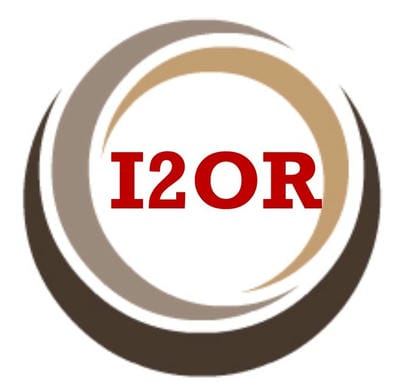Comparative analysis of local infiltration of tonsillar fossa with bupivacaine versus dexamethasone on post tonsillectomy morbidity
Abstract
Background: Tonsillectomy is one of the most common surgery performed in pediatric otorhinolaryngology. Pain and vomiting being the usual morbidity following this surgery. Aim &
Objective: To compare the efficacy of infiltration of Bupivacaine versus dexamethasone into the tonsillar fossa in postoperative pain and vomiting.
Methods: A total of 100 patients, aged 10-30 years of both sexes with chronic tonsillitis accrued into the study. They were divided in to two groups A and B. Group A was infiltrated with 0.5% bupivacaine (1mg/kg body weight) locally and Group B with dexamethasone (0.15mg/kg bodyweight) locally into the tonsillar bed. All patients underwent tonsillectomy by dissection/snare technique, bleeding was controlled by applying local pressure, and by ligatures, thereby avoiding cauterization. Post tonsillectomy pain assessed by visual analog scale (VAS), nausea and vomiting by absence/presence was compared between both groups.
Results: In Bupivacaine group (A), 86% patients observed analgesic effect by the 1st postoperative hour and by 6th hour all had complete analgesia. In dexamethasone group (B) the analgesic effect started by 12thhour and by 48th hour in all patients (p<0.001). Post-operative occurrence of nausea and vomiting in bupivacaine group (A) was 76% and 30% respectively. However, in dexamethasone group (B), the nausea and vomiting was observed in 10% respectively.
Conclusion: Our study showed that 0.5% bupivacaine reduces immediate post-operative pain significantly as compared to dexamethasone and dexamethasone reduces postoperative nausea and vomiting significantly as compared to 0.5% bupivacaine. There were no adverse reactions or complications due to the additional surgical intervention in both the groups.
Downloads
References
2. Brodsky L. Tonsillitis, tonsillectomy, and adeno-idectomy. Head and neck surgery-Otolaryngology. 2001: 979-91.
3. Kaygusuz , Susaman N. The effects of dexametha-sone, bupivacaine and topical lidocaine spray on pain after tonsillectomy.Int J Pediatr Otorhinolaryngol. 2003; 67(7):737-742.doi:10.1016/s0165-5876(03)00091-0
4. Lee KC, Bent JP 3rd, Dolitsky JN, Hinchcliffe AM, Mansfield EL, White AK, Surgical advances in tonsillectomy: report of a roundtable discussion. Ear Nose Throat J. 2004;83(8 Suppl 3):4-13.
5. Mallanagoudar H, A comparative study of effects of preoperative intravenous dexamethasone and local infiltration of bupivacaine on post tonsillectomy morbidity, 2010.
6. Gao W, Zhang QR, Jiang L, Geng JY. Comparison of local and intravenous dexamethasone for postoperative pain and recovery after tonsillectomy. Otolaryngol Head Neck Surg. 2015;152(3):530-535. doi: 10.1177/ 0194599814567856. Epub 2015 Jan 20.
7. Younis RT, Lazar RH. History and current practice of tonsillectomy. Laryngoscope. 2002;112(8 Pt 2 Suppl 100): 3-5. doi:10.1002/lary.5541121403
8. Dhingra PL, Acute and Chronic Tonsillitis. In: Dhingra PL. Diseases of Ear, Nose and Throat. 4th ed. Elsevier; 2007; p. 239-240.
9.Wong AK, Bissonnette B, Braude BM, Macdonald RM, St-Louis PJ, Fear DW. Post-tonsillectomy infiltration with bupivacaine reduces immediate post-operative pain in children. Can J Anaesth. 1995; 42 (9): 770-774. doi:10.1007/BF03011174
10. Bhadoria P, Rathore PK, Mandal S, Sehgal R, MeherR, Singh R. Role of Bupivacaine in reducing post tonsillectomy pain. Indian J Otolaryngol Head Neck Surg. 2006;58(4):335-336. doi: 10.1007/BF 030 49582.
11. Fradis M, Goldsher M, David JB, Podoshin L. Life-threatening deep cervical abscess after infiltration of the tonsillar bed for tonsillectomy. Ear Nose Throat J. 1998; 77(5):418-421.
12.Thimmasettaiah NB, Chandrappa RG. A prospective study to compare the effects of pre, intra and post-operative steroid (dexamethasone sodium phosphate) on post tonsillectomy morbidity. J Pharmacol Pharma-cother. 2012;3(3):254–258. doi: 10. 4103/ 0976-500X. 99428
Copyright (c) 2019 Author (s). Published by Siddharth Health Research and Social Welfare Society

This work is licensed under a Creative Commons Attribution 4.0 International License.



 OAI - Open Archives Initiative
OAI - Open Archives Initiative



















 Therapoid
Therapoid

